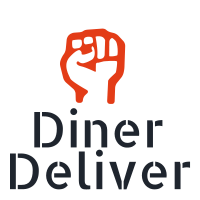What To Know As A Sole Proprietor

Starting a business can be a daunting and seemingly complicated task and a phrase often repeated too many aspiring entrepreneurs is that they are going to fail many times before they succeed. With this in mind, entrepreneurs would ideally start small and utilize a structure that offers minimal start-up costs and low-risk factors and this is why the option of a sole proprietorship appeals so strongly to budding entrepreneurs.
So, what is a sole proprietor and what are the advantages and disadvantages of being one?
What is a sole proprietor
A sole proprietorship is an informal, unincorporated business that is owned and run by one person. It’s generally considered the first step entrepreneurs take in starting their small business and although it doesn’t offer many of the other benefits of incorporated businesses, it has served as an excellent starting point for many successful businesses. A sole proprietor is, naturally, the owner of the sole proprietorship, and the two are, in the eyes of the law, inextricably linked and therefore considered to be one legal entity.
What are the advantages of a sole proprietorship?
For startup companies, a sole proprietorship offers an excellent means by which they are able to start a company with very little startup capital and is a relatively low risk entry point to trialing their business idea. A sole proprietorship, although not offering much by way of a formal operational structure, once registered is able to operate within the company’s chosen industry and is able to provide people with the legal means to be employed in the business. Another key benefit of a sole proprietorship is that, because the owner of the business is not considered a separate entity to the business, they will have full access to all profits accumulated by the business.
What are the disadvantages of a sole proprietorship?
Given that the owner of the sole proprietorship business is not considered to be separate to the company and therefore has full access to the business’ profits, they conversely also are responsible for all of the business’s losses and there is no legal protection offered by the sole proprietorship structure. You can therefore be held personally responsible for any debts incurred and any legal liability cases against the company. If the sole proprietorship is sued, you will be sued too.
Another disadvantage of having a sole proprietorship is that they do not enjoy the tax benefits of an incorporated company. Incorporated companies are able to utilize certain tax benefits that are permitted for registered companies. With a sole proprietorship there are no additional tax benefits and all taxes are filed and declared through your personal tax filings. This means that although this structure may work for when you are operating on a small scale but there is only so far that the business can grow before it stops making financial sense to maintain the business structure from a tax perspective as you will need to pay both self-employment tax as well as income tax.
Additionally, unless a sole proprietorship registers a DBA (Doing Business As), otherwise known as a trade name, they are unfortunately unable to separate themselves from their business. This can mean that the sole proprietorship cannot build any brand identity or credibility as a separate entity to the owner of the sole proprietor – so a sole proprietorship is only ever as credible as the individual that owns it. The most effective way to build credibility is to have a brand upon which you can build a long lasting and successful business. This is why it is generally advisable (and sometimes even legally required depending on your state) that you register a DBA for your company in order to legally operate in a separate capacity.
At the end of the day, although it certainly has its limitations, a sole proprietorship is an excellent starting point through which you can start a business and build a successful company.

 The Art and Craft of Dried Flowers: Insights from a Dried Flower Manufacturer
The Art and Craft of Dried Flowers: Insights from a Dried Flower Manufacturer  Elevating Your Business Strategy with EDG Grant Agencies
Elevating Your Business Strategy with EDG Grant Agencies  Tips to choose the best IT contract staffing
Tips to choose the best IT contract staffing  Things to keep in mind while choosing an Emiratization recruitment agency
Things to keep in mind while choosing an Emiratization recruitment agency  Mastering React Native Development: Skills Every Developer Needs
Mastering React Native Development: Skills Every Developer Needs  Unveiling the Best Eye Glasses Repair Shop in Cambridge
Unveiling the Best Eye Glasses Repair Shop in Cambridge  Harnessing the Medicinal Benefits of Weed: How to Make Use of Cannabis and Hash
Harnessing the Medicinal Benefits of Weed: How to Make Use of Cannabis and Hash  Finding the Best Hash Online in Canada: Advanced Tips for Enthusiasts
Finding the Best Hash Online in Canada: Advanced Tips for Enthusiasts  The Vital Role of Gymnastic Mats in Canada
The Vital Role of Gymnastic Mats in Canada